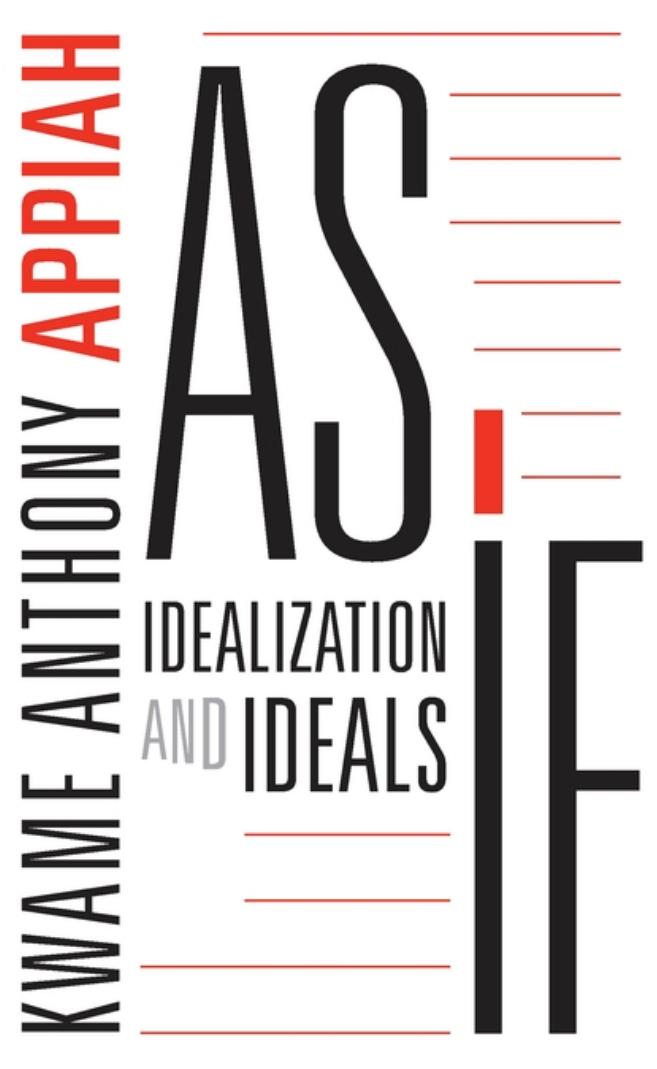As If: Idealization and Ideals by Kwame Anthony Appiah

Author:Kwame Anthony Appiah
Language: eng
Format: epub, pdf
Tags: Philosophy, Ethics & Moral Philosophy, Political, Social, Movements, Idealism, Individual Philosophers
Publisher: Harvard University Press
Published: 2017-08-14T00:00:00+00:00
Make-Believe
I have been discussing one way of using subjective probability theory. It is important to stress, though, that there are many other ways of thinking about belief, some of which I discussed in Chapter 1. As I said in the Preface, one central lesson of reflection on idealization is that we humans work best with many models of the world in its immeasurable diversity. Let me point out now that our capacity for multiple representations is evident from our earliest years.
Some of the most marvelous capacities of children are so natural and so familiar that we can lose track of how extraordinary they are. One such ability, as the philosopher Kendall L. Walton taught me many years ago, is their aptitude for make-believe. Martha, in the garden, forms a shape out of the mud in her hand and tells us, if we ask, that it’s a cake. If she has a toy kitchen set, she may place this “cake” in the “oven.” So far, so familiar. And yet something very strange is happening here. It is another instance of the philosophy of the as-if. For she is inviting us to join her in treating something that she knows is not a cake as if it were. But only in some respects. She’s not going to put it in her mouth, for she knows that this “cake” is in fact mud and that mud is no good for eating. She may blow on it when it comes out of the toy oven, because that is what you do with something that is hot. But she’s not worried about being burned. Because though the cake is “hot” in her make-believe, she knows that the mud that “is” the cake is cool. Psychologists and anthropologists make a great deal, rightly, of the fact that in this sort of play children are rehearsing for real life: for real cakes that need real cooling after real cooking. But let us begin by acknowledging how strange a capacity this is, especially given that it is something children take up at a certain age with very little prompting. The child who plays at cooking does not need to be taught that she is not really cooking, that the mud is not a cake, that the oven is not hot, that you eat the cake by pretending to put it in your mouth. We come prebaked for make-believe.
Kendall Walton began with this fundamental capacity for as-if play, one shared by children everywhere, and drew on an understanding of it to help explore the very grown-up activity of responding to the representational arts: fiction, storytelling, drama. His insight was that there is an important connection between the play of children and these adult entertainments. When we are moved by Horatio’s loyalty to Hamlet (or, for that matter, Piglet’s faithfulness to Pooh), we respond, he argued, in some respects as we would if we were seeing or hearing about actual moments of personal fidelity. And yet (in the normal case),
Download
As If: Idealization and Ideals by Kwame Anthony Appiah.pdf
This site does not store any files on its server. We only index and link to content provided by other sites. Please contact the content providers to delete copyright contents if any and email us, we'll remove relevant links or contents immediately.
The remains of the day by Kazuo Ishiguro(8965)
Tools of Titans by Timothy Ferriss(8360)
Giovanni's Room by James Baldwin(7315)
The Black Swan by Nassim Nicholas Taleb(7097)
Inner Engineering: A Yogi's Guide to Joy by Sadhguru(6783)
The Way of Zen by Alan W. Watts(6590)
Asking the Right Questions: A Guide to Critical Thinking by M. Neil Browne & Stuart M. Keeley(5751)
The Power of Now: A Guide to Spiritual Enlightenment by Eckhart Tolle(5742)
The Six Wives Of Henry VIII (WOMEN IN HISTORY) by Fraser Antonia(5493)
Astrophysics for People in a Hurry by Neil DeGrasse Tyson(5172)
Housekeeping by Marilynne Robinson(4433)
12 Rules for Life by Jordan B. Peterson(4298)
Double Down (Diary of a Wimpy Kid Book 11) by Jeff Kinney(4257)
The Ethical Slut by Janet W. Hardy(4236)
Skin in the Game by Nassim Nicholas Taleb(4232)
Ikigai by Héctor García & Francesc Miralles(4229)
The Art of Happiness by The Dalai Lama(4120)
Skin in the Game: Hidden Asymmetries in Daily Life by Nassim Nicholas Taleb(3986)
Walking by Henry David Thoreau(3949)
